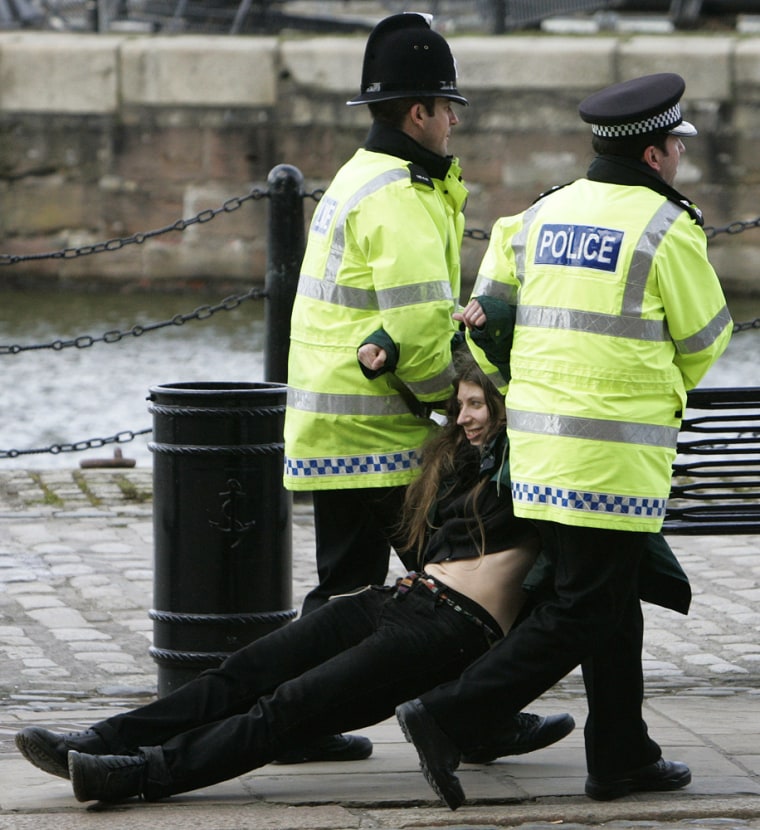Secretary of State Condoleezza Rice said Saturday she looks forward to the day when the United States can shut down its prison camp at Guantanamo Bay, Cuba, but she gave no timetable.
The prison will not remain open “any longer than is needed,” Rice said at a news conference with British Foreign Secretary Jack Straw, her host for a two-day visit meant to be a chummy look at ordinary life outside the capital of Washington’s closest ally.
About 490 foreigners are being held as “enemy combatants” at the prison. The Bush administration claims authority to hold them as long as they are still a threat, without either the full protection of the U.S. justice system or the Geneva Convention compact on treatment of prisoners of war.
Anti-war protests large and small dogged Rice nearly everyplace she went, including the Blackburn town hall building where she met with local Muslim leaders. Angry shouts and police whistles sounded clearly outside the building during the session.
Demonstrations focused on the U.S.-led war in Iraq, in which Britain has been a staunch ally, and on U.S. policies in the pursuit of terrorists. The terror detention camp at Guantanamo Bay has become a symbol in Europe and much of the rest of the world for what is seen as a high-handed or illegal U.S. response to the threat of terrorism after the Sept. 11 attacks.
“We have to recognize Guantanamo is there for a reason, because we captured people on battlefields ... who were either plotting, or planning or actively engaged in terrorist activities,” Rice said.
The U.S. has released many Guantanamo prisoners, including some Britons, and will be “glad of the day when conditions permit the closure of Guantanamo,” she added.
Rice toured a Gothic cathedral in a gray rain, and she later met with local Muslim leaders including the town’s mayor, a Ugandan immigrant. Blackburn is about 20 percent Muslim, and opposition to the U.S.-led war in Iraq is strong.
About 200 demonstrators shouted “Shame on you,” as Rice’s party arrived at the town hall. A huge orange banner read, “War on terror, war on Islam.”
“To a certain extent, the protesters make my point, that democracy is the only system where people’s voices can be heard and heard peacefully,” Rice said after her meeting with about a dozen local Muslim leaders.
Kam Khotia, of the Blackburn Asian Business Council, said he and other leaders gave Rice the same message of opposition to U.S. policies that could be heard in less polite tones outside the window.
“I’m not naive enough to think that this meeting of an hour is going to change American foreign policy,” Khotia said.
“We never thought she would say she would close Guantanamo Bay tomorrow, or would pull out of Iraq tomorrow, or that Palestine would have a state tomorrow,” said Ibrahim Master, an official at the town’s Masjid-al-Hidayah mosque—which earlier canceled a planned visit by Rice.
The town’s mayor, Yusuf Jan-Varmani, a Muslim and former Ugandan refugee who was dressed Saturday in ceremonial red and brown robes, greeted Rice.
“I don’t mind the boos,” he said. “The more they boo, the better for me. It means they have the right to protest.”
